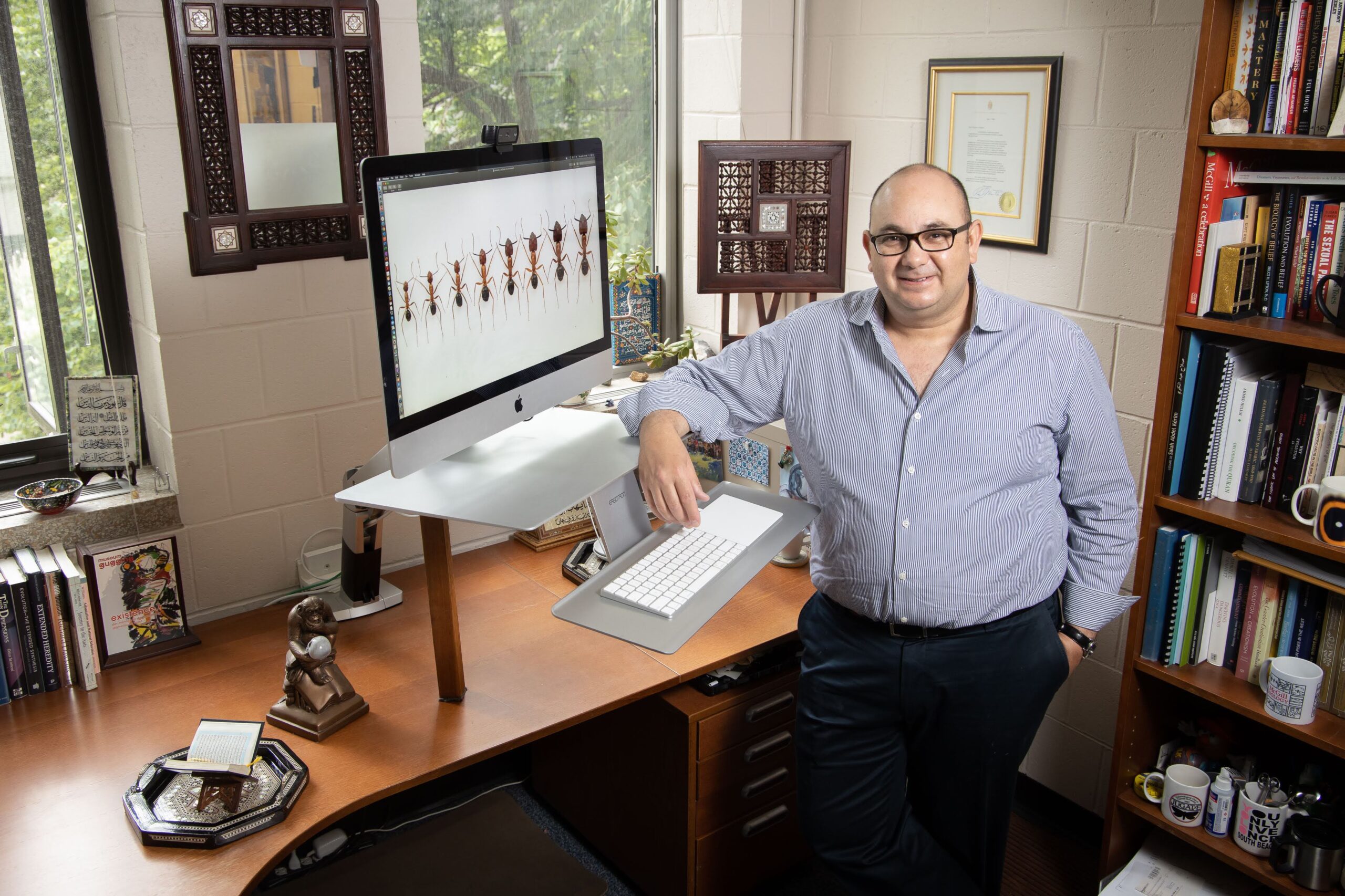
Ehab Abouheif, James McGill Professor in the Department of Biology at McGill, has been elected a Fellow of the American Association for the Advancement of Science (AAAS), one of the highest distinctions in the global science community, which recognizes contributions to science and technology, scientific leadership, and extraordinary achievements across disciplines.
Abouheif was cited by the AAAS for his “distinguished contributions in founding of the field of eco-evo-devo: the mechanisms and processes of the interaction between environment and development in the evolution of major change in lineages.”
“It is an honour for McGill to be represented in the American Association for the Advancement of Science by Professor Abouheif, and I congratulate him on this outstanding achievement,” said Martha Crago, Vice-President, Research and Innovation. “Professor Abouheif is an extraordinary scholar whose work in the field of molecular and cellular biology exemplifies the highest standards of academic excellence and exceptional leadership.”
“It’s been a long road, and to be acknowledged as a pioneer in my field of eco-evo-devo officially by my colleagues at the American Association for the Advancement of Science means a tremendous amount to me,” said Abouheif.
Abouheif is one of eight McGill faculty members named as AAAS Fellows and the second in the Biological Sciences category.
The AAAS is the publisher of the Science family of journals and the world’s largest multidisciplinary scientific society. AAAS Fellows include scientists, engineers, and innovators from around the world that are elected each year by their peers.
Pioneering the integration of three research areas
A member of McGill’s faculty since 2004, Abouheif is widely recognized for his pioneering research on ant societies – one of the most ecologically diverse and evolutionarily successful organisms on our planet – as a model for studies in the emerging field of ecological evolutionary developmental biology, known as eco-evo-devo.
Abouheif has led landmark studies that have opened new avenues for understanding evolutionary processes and defined the field of eco-evo-devo. A study published in Science in 2012 uncovered how hidden ancestry gives the Pheidole genus of ant the potential to develop into huge-headed supersoldiers, a subcaste the genus typically lacks, demonstrating how the right environmental triggers can harness dormant genetic potential.
Abouheif landed on Québec Science‘s 2019 list of top discoveries for a subsequent study published in Nature which revealed how Pheidole ant colonies generate and regulate the balance between soldiers and workers due to a seemingly useless organ that appears only briefly during the final stages of larval development.
By uncovering the mechanisms behind the interplay between genes, development, and environment that influences evolutionary change, Abouheif is leading a transformative shift in biological sciences that holds the possibility to revolutionize medicine, agriculture, and biodiversity conservation.
Abouheif is the recipient of major national and international awards including the Alfred P. Sloan Fellowship, Steacie Fellowship, and a Guggenheim Fellowship. He is a Member of the Royal Society of Canada’s College of New Artists, Scholars, and Scientists and held the Canada Research Chair in Evolutionary Developmental Biology from 2004 to 2014.
In 2013, Abouheif led the establishment of a new Society in his field, the Pan-American Society for Evolutionary Developmental Biology, and served as its founding president. He has also lectured widely on the struggle to reconcile Islam and evolution.
